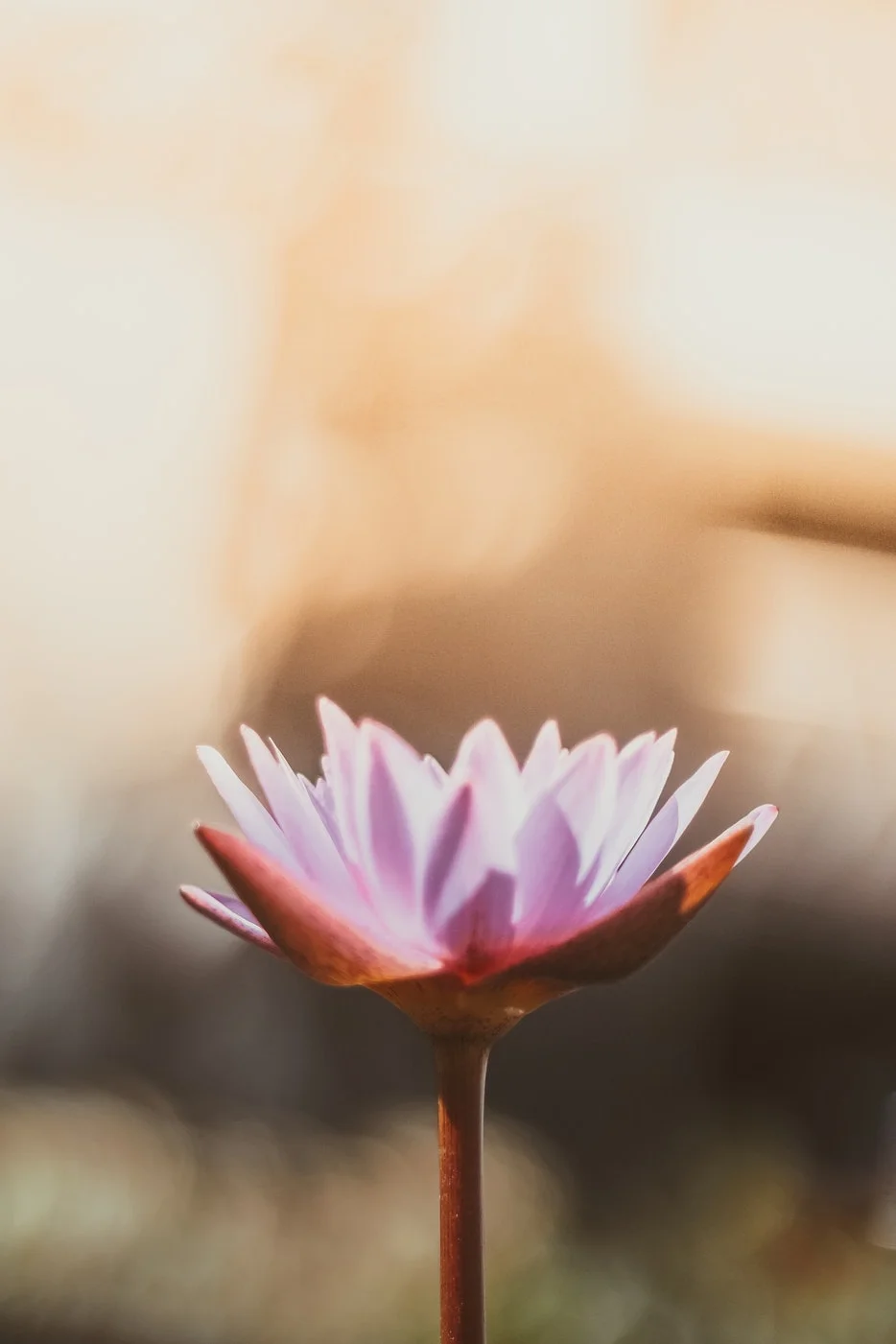I’ve come to understand empty nest as a verb, “empty nesting” I like to call it. The letting go process is fundamental to parenting and continuous. Some empty nest experiences create such emotional turmoil and sadness that parents face empty nest syndrome. Each person needs to find where they want to direct that new energy but I think the first step is to frame this stage of life with a FRESH CHAPTER MINDSET.
Who Cares About Work? Tips for Motivation and Meaning During the Corona Crisis
The Tidying Up Craze: Create More Joy, Empathy and Better Connections
I always know where I am in my life, within my self, by looking at these three areas in my home: my closet, my desk, and my refrigerator. If I am neglecting my self in some way, or feeling overwhelmed, I’ve learned it’s time to start emptying and organizing. Bit by bit, I begin sorting and cleansing my way into a sense of control and confidence, outside and in.
According to the wisdom of Kabbalah, our home is a manifestation of our soul — a place to park our soul at the end of the day. We want to use our home as a reminder of how our consciousness should be. It’s up to us to create the energy in the home and to make it a reflection of us. Creating balance and order around us helps us do the same in our consciousness. Author and home organizer, Regina Leeds, puts it more bluntly, "Your crap and your clutter is what's going on inside of you." Don’t we all know and feel that!
This month, nearly every major publication and network is talking about author, Marie Kondo and her Tidying Up series on Netflix. Who doesn’t agree that tidiness makes us feel better? And yet many do not grasp the extent, and the far reaching impact positive impact of decluttering? So what are the benefits of creating order in our home? And what is the best approach to declutter with joy and balance (and that we can sustain)?
The Psychological, Spiritual and Relationship Benefits of Tidying Up
We know it from experience, but research confirms that those who move from clutter to tidiness experience not only a decrease in stress but an increase in their ability to process information and to focus on their goals. Order also helps us feel more creative, hopeful and more confident we can achieve our potential.
Order can awaken it’s own brand of simple joy. We find a serenity that comes with less stuff. The key is balance. While it can be a happy and beautiful experience to buy a new dress or gadget, or to treasure a sentimental item, there’s a flip side to “too much” and not being sensitive to how each item affects us. Without balance, and developing what Marie Kondo describes as an empathic sense of what sparks joy, we can stuff ourselves into emptiness and guilt.
Even if it doesn’t reach the proportion of a full blown hoarding crisis, too much stuff can easily become an addiction, a distraction, an escape from connecting with our bodies, our loved ones, our pain, our self and the truth within our soul. We are energy seekers by nature, and in a consumer society, it’s easy to turn to the illusionary solution of accumulating more stuff when it’s something much deeper that brings lasting joy. Decluttering opens up the space to connect from within—or as my daughter, Andrea Glik, LMSW, likes to say, “come home to yourself.”
In our relationships, chaos in our environment can easily get in the way. In large part because it’s harder to connect with ourselves much less another. Ask anyone with young children about this one. I remember that time in our life, back in the day, and listen to the struggles of many young couples who can’t seem to catch up. Not only from the hectic and relentless running around of those little joy machines, but just from the mess and disorder itself. It can be difficult to find that open space to connect. The key is finding a way to make the tidying up process light and fun, and not just on the shoulders of one person. It’s about creating an attitude of empathy, gratitude, and mutual care towards your home, your items, and especially the people with whom you live and love. So now let’s talk about the how …
Best Practices for Tidying Up
According to Marie Kondo’s Konmari method, she recommends the following rules:
RULE 1: Commit yourself to tidying up.
RULE 2: Imagine your ideal lifestyle.
RULE 3: Finish discarding first.
RULE 4: Tidy by category, not by location (e.g.,clothing, books, papers, kitchen/bath, sentimental)
RULE 5: Follow the right order.
RULE 6: Ask yourself if it sparks joy.
Here are 7 Tips to not only help make the tidying up more joyful but also SUSTAINABLE:
1. ACCEPT YOUR OWN RHYTHM
Make perfectionism the first thing you discard. Each person is unique and that’s in the beautiful design of our universe. While some decide to make the clearing and tidying process an intense and concentrated project, I find that each person needs to find the rhythm that works for them.
As most of us do, I wear many hats and I continue to make choices that demand from me, stretch me and require constant change. This makes my days and sometimes evenings quite full. That being said, I can’t say that full time organizer fits in my hat closet. So what works for me is to grab snippets of time wherever I can. One fridge-drawer here, one under-the-sink-cabinet there. Maybe it’s the sock drawer before work and the underwear drawer after. Usually mornings work better for me because clearing out and tidying up often requires more decision-making energy than we realize. Sometimes there’s a time for going all in and devoting full days, but I don’t recommend the all or nothing mindset.
2. MAINTAIN BALANCE
While a neat house reflects a person who takes good care of themselves, too neat can show obsession or lack of presence or warmth. I suggest reflecting within, using the extremes of “mess” and “over-neat,” as a gauge for where you are.
3. CREATE A SPACE THAT REFLECTS YOU
Our home should be a reflection of us, not who we think we should be or what others think. When decorating, organizing and tidying, ask yourself, “IS THIS ME?”
4. AWAKEN MINDFULNESS AND COMPASSION
The Kanmari method is most well known for the invitation to ask oneself, “Does this item awaken sparks of joy?” Answering that question requires listening within and being present in the moment without any judgement about what you might hear. Try inviting self-compassion and self-acceptance, right where you are now. Also consider carefully you’re personality and attention style. Some are organically orderly in their way of processing information and life. Others are more expansive in their attention span, and this can affect your relationship with the space around you. So please be gentle with yourself if consistency and keeping order is naturally a struggle.
5. WORK ON LETTING GO—OF ITEMS AND EMOTIONS
When cleaning out our things, its a powerful opportunity to listen to our feelings, especially when we find ourselves having difficulty letting go of items. Pause, take a few deep breaths and pay attention within to the emotions the item brings up or what you’re feeling at the very idea of discarding it. The idea isn’t to feel forced to give precious things away. We must honor our truth when it’s useful, authentic, joyful or meaningful for us to keep an item in our home, in our life.
That being said, oftentimes we hold onto things for less than joy-sustaining reasons. For example, you might feel guilt for not having used an item enough, or fear of not having what you need at a later time. Maybe your ego voice is bombarding you with should’s or I need this to feel good enough. Remind yourself, You are always enough. Sometimes we don’t let go of an item because we don’t realize the drain on our consciousness that keeping it really causes, especially if it’s from a person we need to move on from or some other aspect of our past.
You might need to add soothing and cleansing rituals to support your tidying journey, especially to make it a way of life. Examples include: opening a window, lighting a candle, burning sage, spraying essential oils. If you’re really struggling to let go, a counselor or close friend might offer the support and strength you need. Whatever it takes to help you LET GO— whether of the items that do not spark joy or the emotions that keep you stuck. Remember, on the other side of letting go awaits your new and more joyful, loving, and authentic life.
6. SAY THANK YOU
Every living thing or object contains sparks of the Light of Creation itself. Many spiritual pathsteach this beautiful idea. When clearing items away, I love the idea of openly thanking the item for however it served you before you say goodbye. This can assist with the letting go and moving forward into your present life, with newly refreshed goals and dreams.
7. TIDY WITH RESPECT AND UNITY IN MIND
One of the gifts Marie Kondo brings to tidying up is the unconditional respect and acceptance she injects into the process— towards the tossed away items themselves, towards oneself and towards the others in the home.
In the Down-sizers episode, Marie shares, “It’s very important when you’re tidying to respect each other. Having a family of my own, and being a mother and I think the things in our house and all the family members in a home kind of function the same way. We each play a role and we only have a limited amount of space and we all need each other.”
Power of Animal Bonds and How to Grieve Their Loss
When humans bond with animals, wonderful things can happen, particularly for those whose pets who become true “companion animals.” Two camps of humans seem to exist: those who get it and those who don’t. Why do animal bonds make such a strong impact, what can we learn from them, and how can we best take care of ourselves at their passing.
Sibling Rivalry or Sibling Bullying? When Does it Cross the Line and What Can Be Done?
The Competitive Couple: How to Avoid this Toxic Dynamic
Whether it’s about who does more or who makes more, or maybe it’s who works the hardest or who is in better shape. The bottom line is that while couples yearn to come together as one, the human ego has a pesky way of allowing competition to invade the safe haven needed for love to deepen and grow. Here are some common competitive scenarios I hear about:
Family Estrangement: Why Children Cut Off Their Parents and Tips for Healing
Some splits between parent and child come from something sudden or dramatic, but most broken ties develop gradually and stem from misunderstandings and less extreme, albeit hurtful, interactions. Let’s talk about what hope there might be if you are estranged from your parent or child. Here's what I recommend…
Self Care for the Winter Blues
Regardless of what our external environment naturally dictates — whether it’s the harsh winter or any other challenge in life — with the right tools, we have the inherent capacity to become the cause of our own well being and happiness — true leaders, if you will. The key is SELF CARE ... that empowers your body, your mind, and your spirit.
The Danger of Comparing: How to Live Happily Being You
As Mitch Prinstein, a psychologist at University of North Carolina, puts it in his interview with Psychology Today, “Social media has created a life-long adolescence.” The best news of all is that we have a choice in the matter and possess within us everything we need to“feel good in our own skin and be happy with who we are.”
Master Your Thoughts, Master Your Life
Job Happiness
Loving Your Body: It's All In Your Mind
Self-love and acceptance influence our peace of mind and joy far beyond our typical understanding and starts first with identifying what is going on in our heads. We often don’t even realize our inner thoughts and the way we talk to our selves about our bodies, and this leaves us vulnerable; we can’t change what we can’t see. A common term among body positive writers is “It’s our mind that bullies our body.”
Should I Stay or Should I Go?
I’ve created a checklist to inspire you to ask yourself some important questions — 7 about yourself, 7 about your partner/relationship. This exploring process is to awaken awareness, action and personal growth — through which greater clarity will likely unfold. I draw these exploratory questions from my own marriage journey and my work with couples, which have both been profoundly enhanced by what I have learned about relationships from the wisdom of Kabbalah.
Phone Addiction and Its Perilous Effect On Relationships: Simple Changes Can Make A Big Difference
According to recent studies, a large majority of partners deemed smartphones and other technology devices as the cause of greater relationship conflict and dissatisfaction, and for many, this included lower life satisfaction as well. While our smartphones offer tremendous obvious benefits, including staying in better touch, they have also introduced unprecedented barriers to human connection, within ourself and between each other. Awareness is the first and essential step to creating motivation for change. Then I'll share 4 Simple Changes to keep ourselves in better balance.
A Stronger Connection with Dad: Why it Matters and Tips to Make it Happen
Strengthening our connection with our fathers--directly or indirectly, physically or metaphysically--opens important channels of success and happiness in our lives. From all sides of the family dynamic, read on for some suggestions to consider to help fathers and their children create a stronger connection.
Finding Inner Peace and Joy During Highly Emotional Times
For so many people, the events around us have evoked a great deal of anger, fear and confusion — and a widespread increase in “us versus them.” It’s understandable that we would feel strong emotions these days, and that it’s a time for speaking and standing up for what we believe in. But how do we find balance when anger or sadness take hold?
Establishing Boundaries and Being True to Yourself in Your Close Relationships
We are people who need people. We simply cannot reach our true potential without being loved. The paradox is that to attract the right kind of person into our lives, one with whom our love can grow and grow, we must first have a strong connection with our self and the light we possess inside. Only when we are emotionally independent, when we let go of the desperation and intense “need” for someone else to validate or want us, to praise or make us a priority, do we build the proper platform on which to actually draw the love we so desire.
How to Support Your Mate with Depression, Anxiety and Disorders
When I work with couples in my counseling practice, time and time again, I see one or both struggle with some kind of anxiety, depression or other mental health disorder. While not a deal breaker by any means, unresolved mental health problems can lie at the heart of couples’ greatest friction and disconnection.
New Year’s Resolutions? 4 Secrets Behind Those Who Succeed
Election Stress Disorder: Tips for Mental Balance and Relationship Harmony
While this election season has stirred up an especially bitter brew of indignity and conflict, one common bond crossing the political and gender aisle is the election stress. The American Psychological Association just released a new survey indicating that more than half of American adults are either very or somewhat stressed by the 2016 election.



















